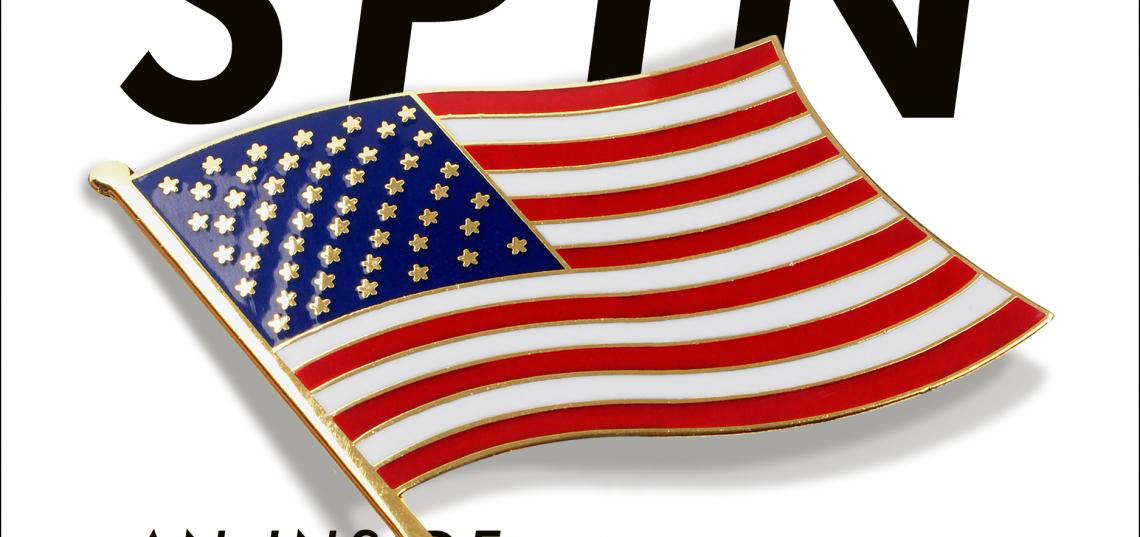
UPDATE Nov. 18, 2016:
The Washington Post Editors’ Picks includes David Greenberg’s book, "Republic of Spin: An Inside History of the American Presidency," as a Notable Nonfiction Book of 2016.
Election Day Q&A with Professor Davig Greenberg
Nov. 8, 2016
It’s Election Day 2016, and Professor David Greenberg’s phone is ringing nonstop and emails are pouring in fast, as journalists try to reach him. As a professor of history and journalism and media studies at Rutgers, and the author of the recently published and highly acclaimed book "Republic of Spin: An Inside History of the American Presidency," journalists have been seeking out Greenberg’s expertise on the election since its earliest days.
Fortunately, despite how incredibly busy Greenberg is today, he generously took the time to answer a few questions from SC&I about the historic nature of this election.
Q: Is this truly an exceptionally historic election to participate in, in terms of American history and the history of American media?
A: This is an exceptional election, for two reasons: First, it will probably mean our first female president, a huge moment for the nation that has not gotten as much attention this year as you’d think. Second, we have not, at least in recent times, had a nominee like Trump—someone so given to insulting his rivals personally, someone so vulgar in his style, someone so ready to bully and bluster while at the same time being so poorly schooled in the issues before the nation. We’ve had campaigns that were as negative, like George Bush Sr. against Dukakis or Clinton, but Trump’s ego-driven, attack-all-comers style makes this one seem worse.
I think that what people are missing about Trump’s “newness” is not the extremeness of his rhetoric or policy. Other Republicans have been just as extreme, just as conservative. In fact, most leaders of the conservative movement, whether they be intellectuals or politicians, don’t consider Trump to be one of them. The difference, rather, is that he is a “paleoconservative” – a term referring to someone who wants to repeal the rise of neoconservatism, which brought conservatism into the mainstream. (The neoconservative intellectuals deserve awards for being the one faction of the GOP that has uniformly and on principle opposed Trump every step of the way.) On issues like trade, finance, globalization, and immigration, he takes a populist/nationalist view of the world reminiscent of the Old Right of the 1930s, and it’s not a coincidence that he uses the slogan “America First.”
Q: Has the media played a significantly different role in this election, and if so, how?
A: There’s a lot to say here. Two quick things: Trump is the first candidate who figured out how to use Twitter to his advantage. He built a huge following, especially among journalists, with his spontaneous, angry, and inimitable tweets. Clinton’s tweets, in contrast, were written by committee. Second, he benefited enormously from free airtime. I mean here the cable TV channels, more than the print outlets. During the Republican primaries, he always made good copy, and in a field divided 16 ways, this sucked up the oxygen and deny other, legitimate candidates such as Lindsey Graham any hope of breaking through.
Q: Has the way people read/get news changed because of this election?
A: I think this election reflected but didn’t cause changes in how people get their news. For many years, social media and other internet outlets make it easier for all of us to follow favorite writers rather than favorite publications. This creates problems for newspapers, websites, and magazines—even for TV channels—who need to have a staff that covers a range of topics with a variety of expertise. They cannot simply afford to chase after clicks, but they have a hard time resisting.
Q: It seems that people have been following this election more closely than any in recent memory, but do you anticipate that Americans will remain as hungry for news about the two candidates following the results of the election?
I think it will subside. Obviously, whoever is elected president will remain the main story for some time to come. The loser will slink off stage most likely, perhaps to make a return appearance down the road.
Q: Do you think voting is critical, even if people are still undecided?
A: There is a difference in what I recommend for the individual and for the collective. On the whole, I think robust turnout and an engaged electorate is important for democracy. Apathy and indifference weaken democracy. But for an individual who is genuinely undecided, I don’t see the good in choosing if you don’t have a clear feeling why one candidate would be a better president than the other. I think that deep down most people do have their reasons to like one or the other, and that comes out in the voting booth.
What I think is really destructive to democracy are those who would vote for someone like Jill Stein of the Green Party. This is someone who is a complete joke, someone who—in all seriousness—lists on her own website, as a credential to run the most powerful nation on earth, the fact that she led a local recycling committee. People have this touchy-feely notion that a third party or fourth party will strengthen our democracy. It will do the opposite. In Europe, the proliferation of parties led to Nazism and Communism. It is much better for people who consider themselves leftists to work within the Democratic party and help make it a big tent. The same goes for people on the far right; they will do their cause more good by working within the GOP. Splitting the GOP into two parties, one neoconservative and one paleoconservative, will be nice for Democrats, who would benefit, but our country has always been made stronger by the presence of two mainstream parties. So I think it’s probably better not to vote at all than to vote for a fringe candidate.
